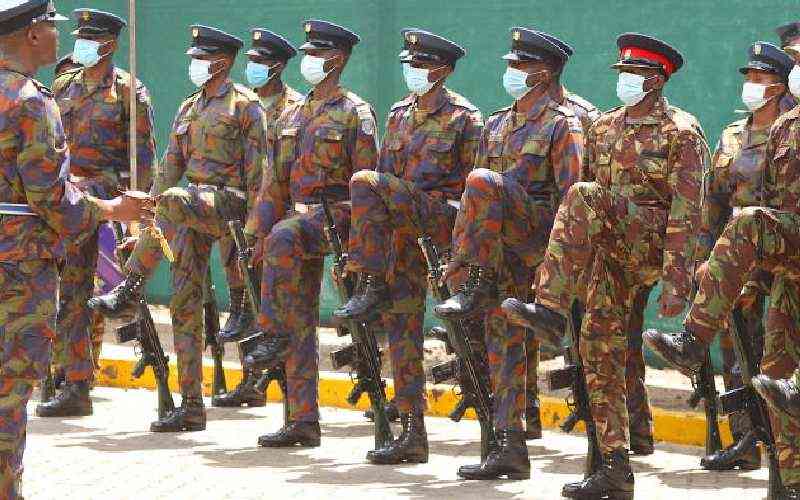
Army personnel during the preparations for the public viewing of former President Mwai Kibaki's body at Parliament building. [Denish Ochieng, Standard]
There was a time it was a crime to be able-bodied and fit in Kenya. If one had a muscular frame, they were best advised to flee from their homes and live in caves. In some instances, men desperately tried to get fat or feign illnesses to avoid being conscripted into the army.
During these desperate times at the height of the First World War in 1917, there was simply no hiding place for the omnipresent military recruiters who would swoop on a village when they were least expected. The Kenya Africa Rifle recruiters roamed all the villages in Kenya in search of men who could act as their beasts of burden in the war.
Facts First
Unlock bold, fearless reporting, exclusive stories, investigations, and in-depth analysis with The Standard INSiDER subscription.
Already have an account? Login
 The Standard Group Plc is a multi-media organization with investments in media
platforms spanning newspaper print
operations, television, radio broadcasting, digital and online services. The
Standard Group is recognized as a
leading multi-media house in Kenya with a key influence in matters of national
and international interest.
The Standard Group Plc is a multi-media organization with investments in media
platforms spanning newspaper print
operations, television, radio broadcasting, digital and online services. The
Standard Group is recognized as a
leading multi-media house in Kenya with a key influence in matters of national
and international interest.

